Fines for begging? A European judgement overrules Swiss justice
07.06.2021 – Stéphane Herzog
A ruling by the European Court of Human Rights has put an end to the issuance of fines for begging in Geneva. This decision, based on the imprisonment of a Roma woman, has international reach.
Can a person be fined and imprisoned simply because they were holding their hand out to a passerby? On 19 January, the European Court of Human Rights (ECHR) ruled unanimously that this practice was in violation of Article 8 of its charter, which concerns the right to respect for private and family life. “Being in a clearly vulnerable situation, the applicant - a Roma woman - had the right, inherent in human dignity, to be able to convey her plight and attempt to meet her basic needs by begging,” ruled the court.
Unable to pay several fines for begging, adding up to a total of 500 Swiss francs, the woman received a sentence of five days in prison in Geneva. This was in 2015. The ECHR has now condemned this sanction for its severity. “In view of the applicant’s precarious and vulnerable situation, the imposition of a custodial sentence (…) was liable to further increase [her] distress and vulnerability,” it wrote. The court ruled that Geneva should pay the applicant 922 euros in respect of non-pecuniary damage.
It is surprising to learn that in 2008, the Federal Supreme Court had largely anticipated the conclusions of the ECHR, stating that the right to beg should “clearly be considered as (…) forming part of the personal freedom guaranteed by the Constitution.” Yet Swiss judges at the time concluded that Geneva had a legal basis for its prohibition. In Geneva, the ban on begging was intended to safeguard public order, safety and peace.
No breach of public order
The ECHR did not stop at annulling the decisions taken successively by the Geneva justice system and the Federal Supreme Court regarding the outcome for the plaintiff. In its comments, the ECHR also attacked the article of the Geneva Criminal Code, voted for in 2007, which punishes all begging by way of a fine. The judges considered that begging did not represent a breach of public order; at most, it caused moral discomfort. Finally, the argument that pursuit of beggars is intended to fight against mafia networks – a fact that Switzerland was unable to prove – was problematic. For the ECHR, the Roma appeared more as victims.
A lawyer for Roma, congratulated and threatened
On 19 January, Dina Bazarbachi, a lawyer who has defended Roma in Geneva for 14 years, was emotional at the news. “Two weeks before the announcement, I feared I would lose before the court, which would have had harmful consequences on the way Roma are treated in Europe.” The ECHR’s ruling, the jurisprudence of which applies to the 47 Member States of the Council of Europe, represents the end of a judicial battle ongoing since 2008. Dina Bazarbachi has received several messages from lawyers congratulating her on her tenacity. But she has also received hate mail, including one death threat, about which she notified the police. “This shows the hatred that certain people feel towards Roma,” she says, noting that to her mind, the Genevan law on begging had been created and applied specifically with this population group in mind. Legislative debates have indeed effectively focused on the Roma and the majority of fines, if not all of them, are issued to Roma people. This situation, if it could be proven, would constitute a violation of the prohibition on indirect discrimination, underlined the court.
Geneva prepares a new law against begging
In Geneva, the ECHR decision has caused something of a stir. The Genevan public prosecutor, Olivier Jornot, who had been involved in drawing up the law against begging, has been obliged to halt all legal proceedings underway and to end the fining of people caught begging. Hundreds of fines issued no longer apply. In 2020, the Genevan police issued 3,723 fines for begging, amounting to 457,890 francs. In these operations, 5,278 francs was seized, as money considered the product of an illegal activity is confiscated from those found begging. For years, Bazarbachi has been vigorously opposing these fines, which end up being reduced by judges, in view of the vulnerable situation of Roma. “This whole system is extremely expensive. There are other battles to fight,” states the lawyer, who deplores the launch of new cantonal draft legislation against begging by an FDP minister. Introduced at the beginning of March, this law would notably prohibit begging in any commercial or touristic street.
The lawyer considers that the sanctions stemming from this legislation risk contravening the ruling of the ECHR. She is also uncertain of the political gain to be had from the draft legislation.
“The pandemic has increased poverty amongst Swiss people as well. There is more solidarity for the poverty-stricken, including the Roma.”
Dina Bazarbachi
Lawyer who has defended Roma in Geneva
Cantons under the spotlight
The court’s ruling has forced all of the cantons to examine the legal risks of convictions which could be challenged, or even result in the paying out of compensation. In Basel, a motion concerning the reintroduction of the prohibition on begging had been adopted by the parliament. The ECHR ruling has caused this process to be suspended. In Lausanne, where the cantonal law on begging draws on the Genevan legislation, the ECHR ruling is currently under review. In Zurich, where the police currently issue fines to people found begging (700 fines in 2020), a communication issued in March indicated that for the moment, the court’s ruling would not change anything.
The ruling in question has already had an impact outside Switzerland, as in France where criminal law only prohibits begging termed “aggressive”. In February, Parisian lawyer Lionel Crusoé, a specialist on such questions, represented the Foundation Abbé Pierre and the French League of Human Rights in contesting a municipal ruling in the town of Metz prohibiting begging. “We used the European ruling in the arguments we laid before the court and we were successful,” he said.


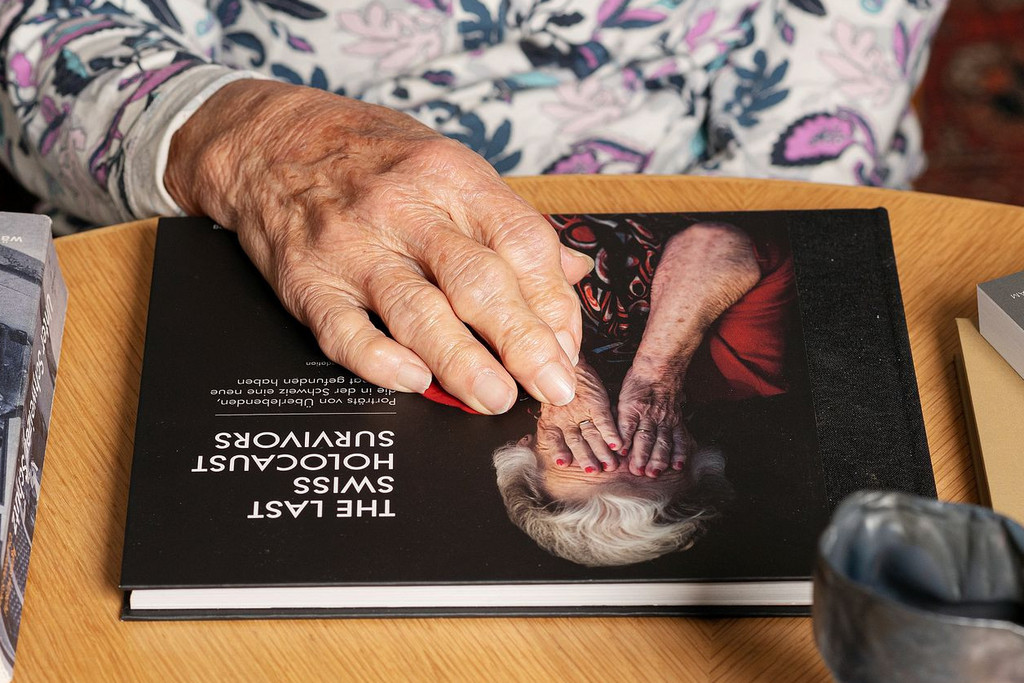








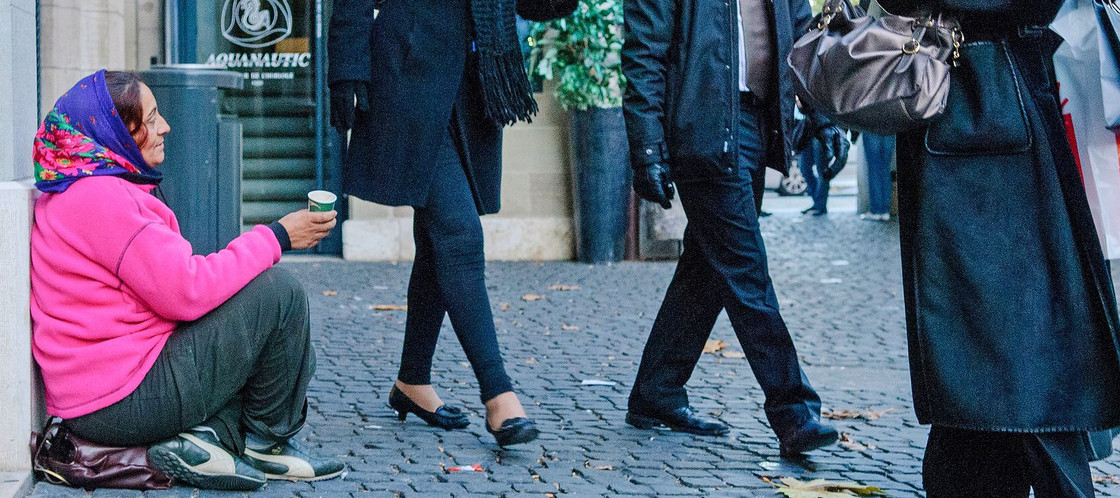
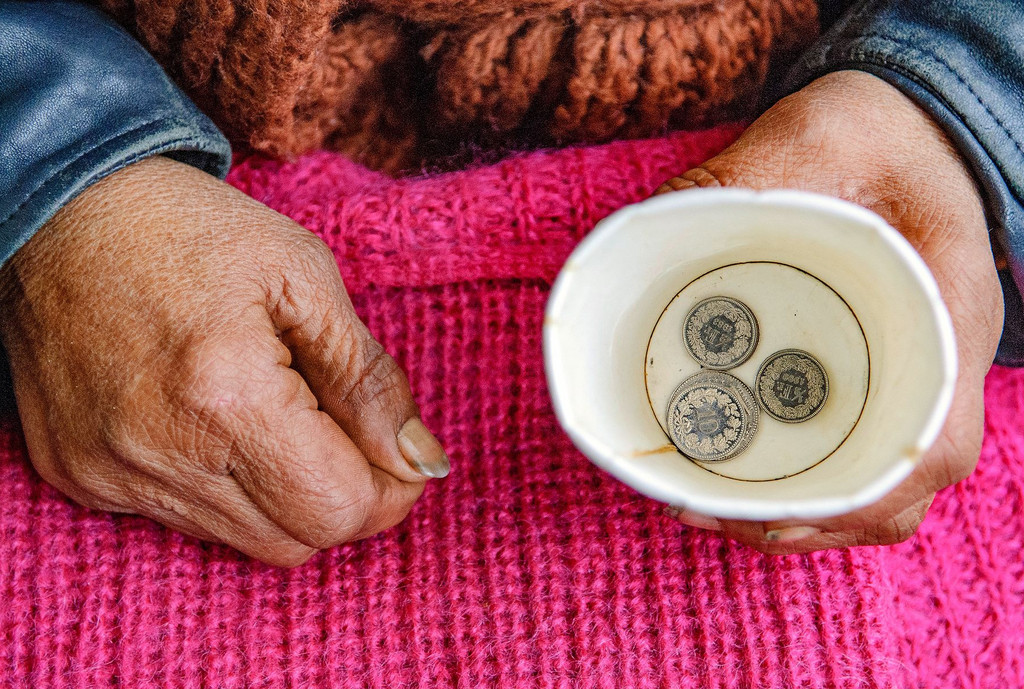
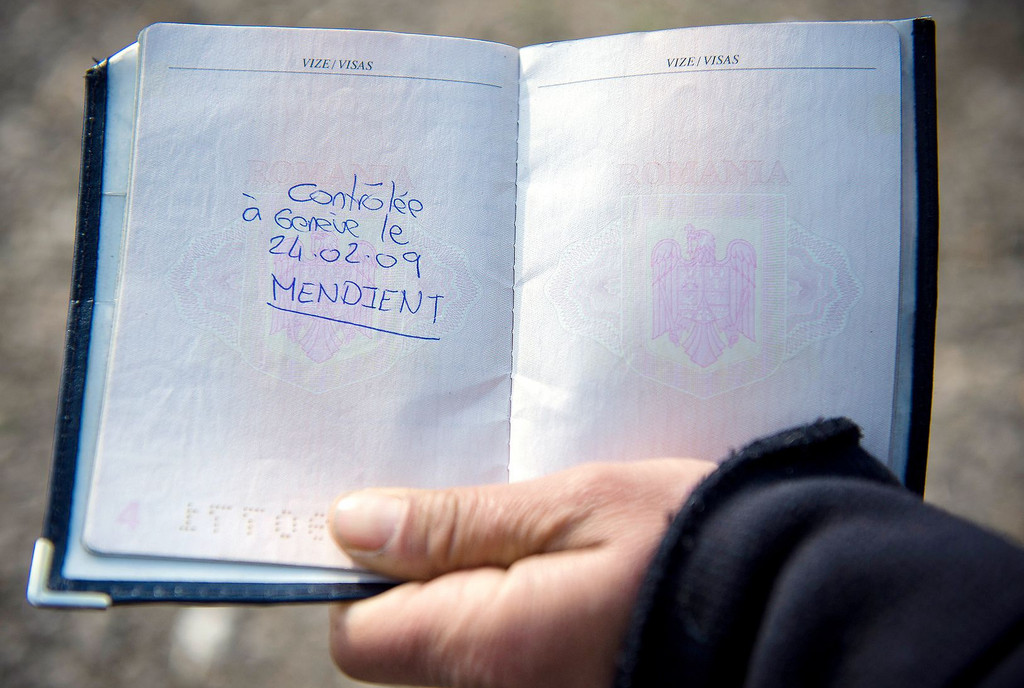
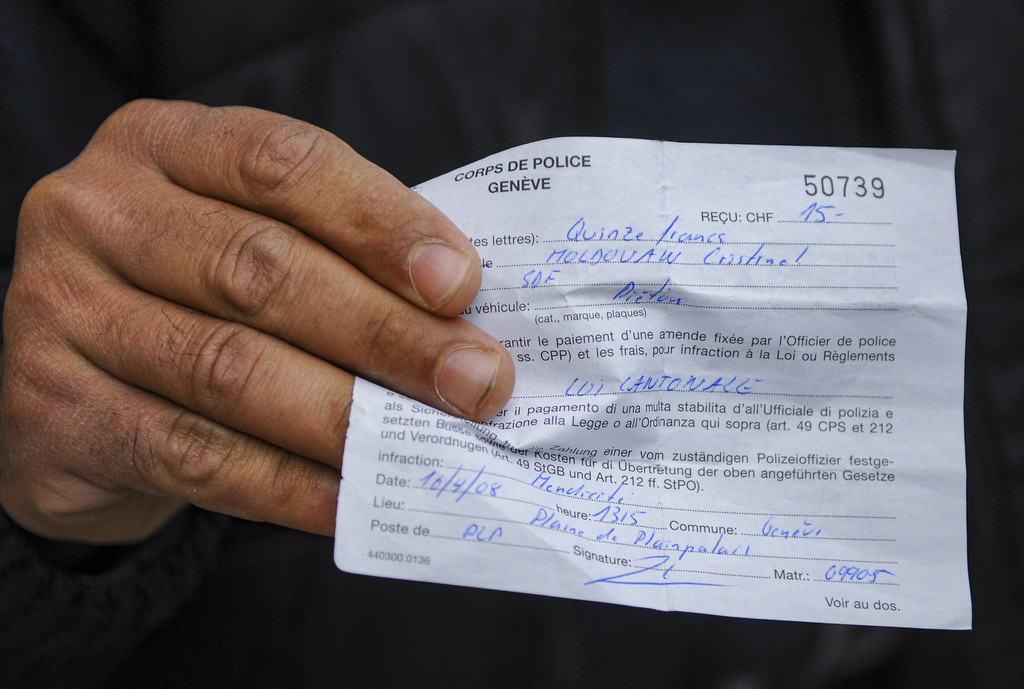

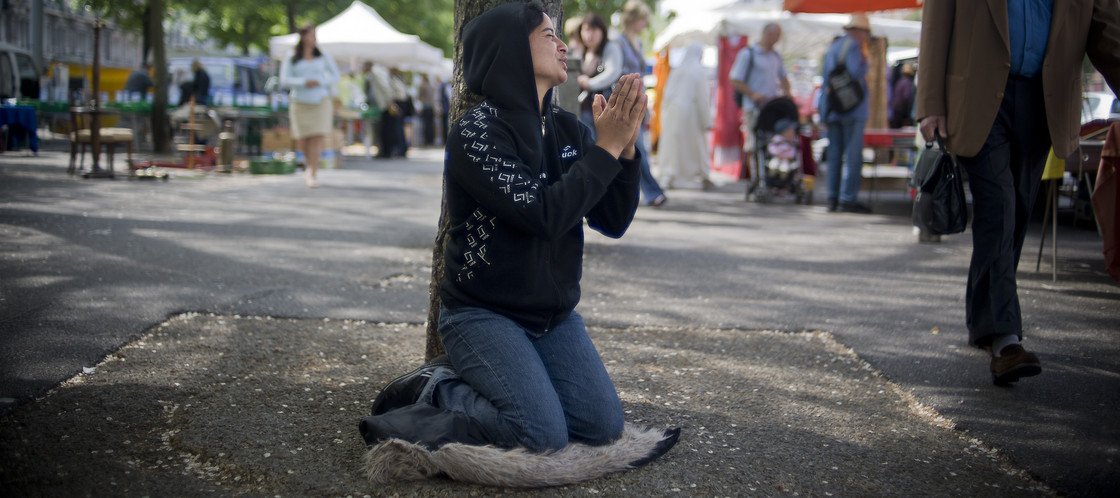
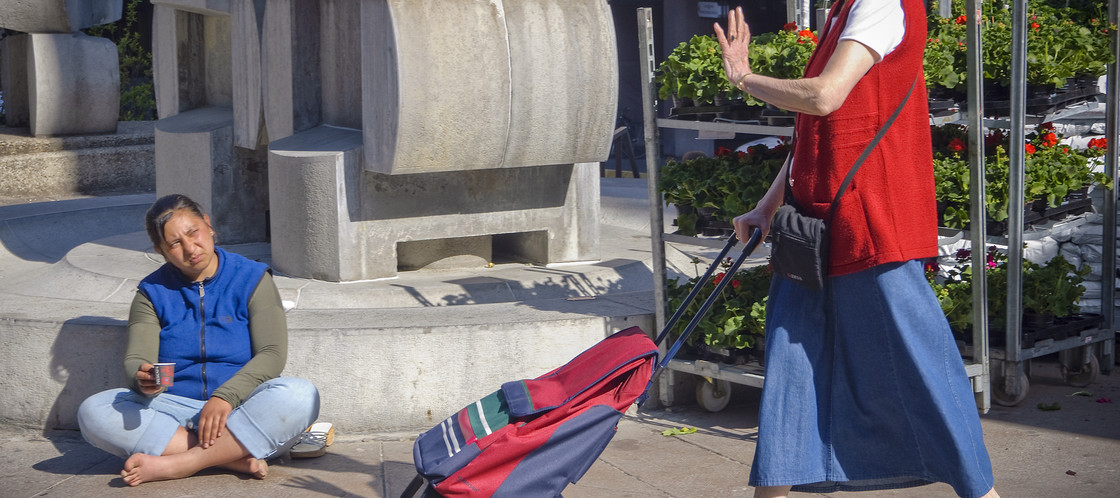
Comments
Comments :
The issue here is a matter of pride, when visitors to switzerland see people begging on the streets, it puts a bad taste in there mouths and gives a bad impression of Switzerland, they ask the question, can the swiss not look after their citizens.
The problem is that these are not Swiss citizens, they are Romanian gypsy's who have no country and who rome every capital in Europe, their trade is begging and has been for generations of gypsys.
They work very hard at their trade, long hours, hostile conditions and for very little money, who in their right minds would do this unless they had to, but for some reason the gypsy's cling to what they know best, their traditions.
while Romanian gypsy's may be bad for business, the only way to solve this begging problem is to give the gypsy community another trade, to do this the government will have to show love and generosity towards the community and society will have to accept and train them.
Man kann ob der Haltung in den meisten Kommentare nur zutiefst erschrecken! Es ist wunderbar, dass es den Europäischen Gerichtshof für Menschenrechte, ja dass es die Menschenrechte gibt. Eine kleine Ahnung des Weltgeschehens darf jedem zumindest gelegentlich auf der Strasse begegnen. Sicherliche vorhandene Probleme können auf lange Sicht mit Respekt und Augenmass und vielleicht auch in Form der Beschäftigung mit der viele hundert Jahre alten europäischen Geschichte der fahrenden Bevölkerung des Kontinents angegangen werden. Da gäbe es viel, viel zu entdecken!
Je vous tiens à vous exprimer ma honte à la lecture de cet article. Dans ma ville d'origine, que j'aime, et dont bien des Français me parlent avec admiration, on arrête les mendiants, on les verbalise et on prend même le peu d'argent qui se trouve dans leur soucoupe. Heureusement qu'il existe la Cour européenne des Droits de l'Homme pour dénoncer une telle pratique. Et dire qu'en 2008, le Tribunal fédéral avait considéré que le droit de mendier faisait partie de la liberté personnelle garantie par la Constitution ! Notre dernier passage à Genève date de 2012 pour l'enterrement de ma mère..... je me demande si j'ai vraiment envie d'y revenir un jour !
Couldn't the cities hand out huge fines for anyone caught giving a beggar money? Business owners could be encouraged to take photos of anyone seen giving money to a beggar and be given the incentive of getting a portion of the fine for giving the photo to the police.
Man weiss genau, dass all die Bettler von Osteuropa kommen von Rumanien ein sehr koruptes Land. Als ich in der Schweiz war vor ein paar Jahren war es eine Katastrophe im Sommer durch die Strassen von Genf und Lausanne zu schlendern, alle 2 m sitzt eine alte Dame meistens noch mit einem Baby auf Arm. Man weiss genau dass das alles organisierte Banden sind, am Morgen sitzen diese Frauen auf die Strassen und sammeln sie am Abend wieder ein. Und das Geld wird von dem Banden Boss eingesammelt. Und das sollte Menschen wuerdig sein? Die EU sollte aufhoeren der Schweiz solche Vorschriften zu machen. Die sollen im eigenen Land fuer diese Leute sorgen.
Wenn's so weiter geht mit dem EU-Sozialismus müssen bald die Mehrheit der Europäer und der Schweizer selber betteln gehen. Allerdings, in der UdSSR, der DDR, Nordkorea und Kuba war/ist Betteln verboten! Betreffend der Roma müsste endlich die Daumenschraube bei deren Heimatländern hart angezogen werden. Die exportieren nämlich ihr Problem einfach nach der EU und der Schweiz. Genf sollte unbedingt dieses Urteil ignorieren und endlich gewerbemässiges Betteln zum Straftatbestand machen. Damit kann man Ausschaffen!
Il n'y a pas que les "roms" qui mendient dans nos villes mais beaucoup de "vrais pauvres" bien de chez nous ainsi que des "SDF".
Il est vrai que l'on a parfois à faire à une "mendicité organisée" qui ne profite généralement pas aux intéressés eux-mêmes.
Pour ma part et cela n'engage que moi, lorsque je croise ces personnes en ville, il suffit parfois d'entamer un dialogue pour connaître leur "besoin immédiat"; je m'en vais alors leur acheter un sandwich, une boisson, un paquet de cigarettes du lait pour leur bébé ou même des croquettes pour leur chien..!
En quoi est-ce si dérangeant pour nos élus et élites aux revenus "confortables" qu'ils en soient obligés de légiférer contre la mendicité?
Mais pour cela il faut accepter d'y aller. Personne n'est à la rue à Genève sans le vouloir. Avec ceci à quoi peut bien servir l'argent demandé aux passants?
Les femmes roms sont généralement exploitées par les chefs de clan qui les contraignent à la mendicité, ainsi que leurs enfants. En France, on a ainsi des mendiants "professionnels" à tous les coins de rues dans les villes. Autoriser la mendicité revient à maintenir les enfants roms hors des systèmes scolaires et à engendre une délinquance juvénile. La CEDH est pilotée par des bobos qui nuisent par leurs décisions à la sécurité des citoyens et à l'insertion des enfants roms !
Schweiz: Ich kann mich erinnern, dass Roma und andere "Bettler" täglich in Bussen über die Grenze bei Feldkirch kamen und in Buchs SG, an verschiedenen Orten platziert wurden. Die Polizei versuchte sie wegzuweisen. Erfolglos. Am Abend wurden sie beim Bahnhof wieder eingesammelt. Die Einnahmen kassierten die Organisatoren dieser Bettlerei. Der Artikel ist sehr einseitig und zeigt nur die Ansicht der "Anwältin"
Der typisch einseitig geschriebene Artikel, - einfach keine professionelle Berichterstattung, sondern ein main-stream-naiver Werte-Autoritarismus: Oh wehe, man tastet hier ein Menschenrecht an, Tabuthema!, da setzt das Denken sofort aus und der Europäische Gerichtshof, die gottähnliche Instanz spricht zu uns, die einzige Instanz, die überhaupt befugt ist, darüber zu befinden: hier die natürlich nur tapfere Minderheiten-Schutz Anwältin (sichtlich bewegt) - und dort der kalte Kanton Genf (mit allen Politikern - das beinhaltet übrigens Politiker aller Geschlechter und Befindlichkeiten - die nicht zählen). Ach, ich kann es in dieser Form kaum mehr sehen; allmählich neige ich - ich staune wirklich an mir selbst - der SVP zu. Fremde Richter! Was soll denn das!
Ein sehr einseitiger Artikel. Warum werden denn diese Gesetze implementiert? Das einzige, was der Artikel dazu sagt, ist die Spekulation, dass es rassistisch motiviert sei. Warum fragt man nicht, wie es dazu kommt, dass diese Aktivitäten verboten werden müssen? Wie steht es um mein Recht, unbehelligt mich im öffentlichen Raum bewegen zu können? Es ist symptomatisch für diese fremden Richter, diese Interessen mit "einem moralisches Unbehagen" abzutun - wer hier Gut und Böse ist, ist jedenfalls klar verteilt.